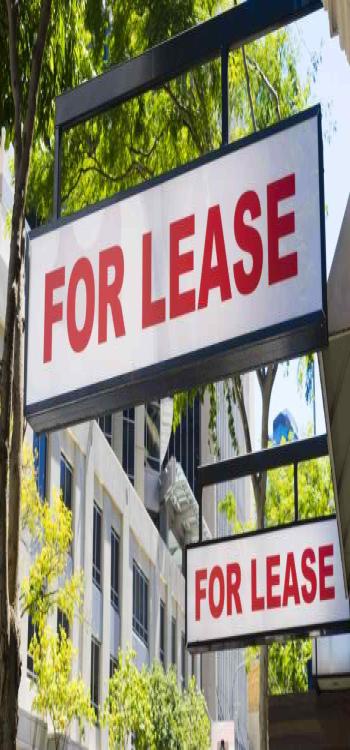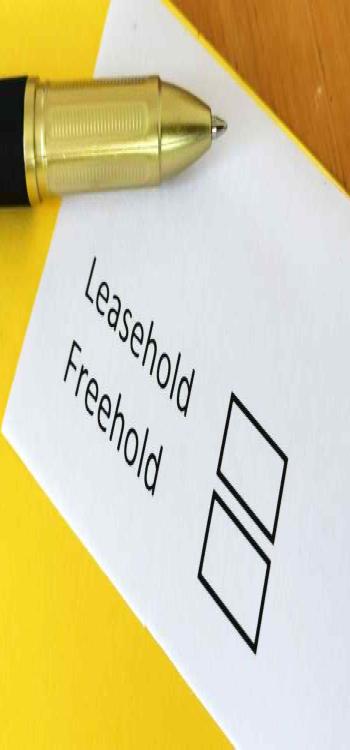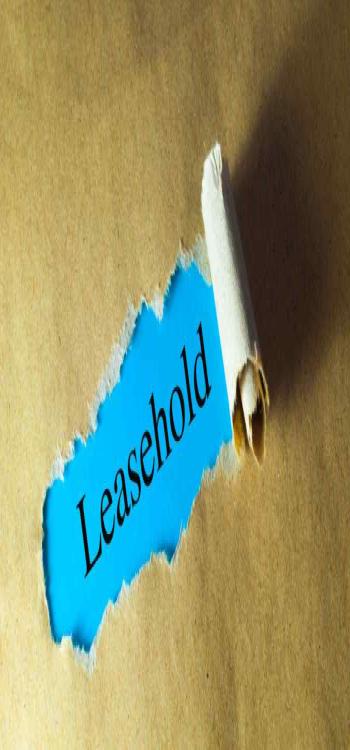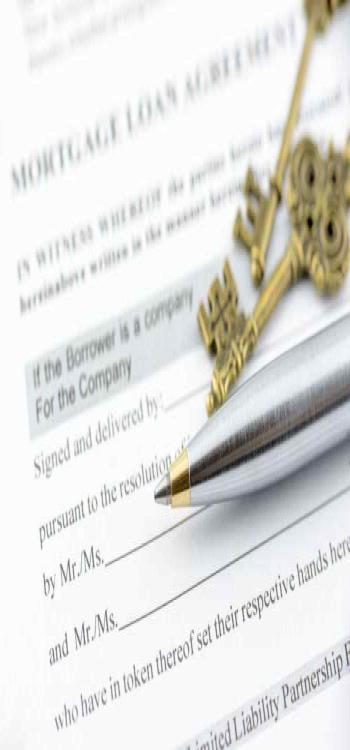When you’re looking to buy or invest in real estate, you’ll often come across the terms leasehold and freehold. Leasehold and freehold are two different forms of property ownership in India, and it’s important to understand the differences between them before making a decision. In this blog, we’ll explore the key differences between leasehold vs freehold properties, the pros, and cons of owning each type of property, and the process of converting a leasehold property to a freehold property. We’ll also provide some advice for first-time homebuyers, real estate investors, and property owners, and show you how NoBroker can help you find the perfect leasehold or freehold property in your preferred location.

Things we covered for you
Importance of understanding the differences between the two

Buying or investing in property is a big decision, and it’s important to have a clear understanding of the ownership rights and responsibilities that come with it. Understanding the differences between leasehold and freehold properties can help you make an informed decision that meets your needs.
Read: Best Places for Property Investment in Mumbai 2024
Definition and characteristics of leasehold properties
A leasehold property is a type of property ownership where you have the right to use and occupy the property for a specified period of time, typically 99 years. However, the property is still owned by the landlord or freeholder, who is responsible for maintaining and repairing the property.
Definition and characteristics of freehold properties
A freehold property, on the other hand, is a type of property ownership where you own the property and the land it’s built on outright. You have full ownership rights and responsibilities, and you’re free to sell, rent, or mortgage the property as you see fit.
Differences between leasehold and freehold properties

Ownership rights and duration: Leasehold vs freehold property
The key difference between leasehold vs freehold properties is the ownership rights and duration. With a leasehold property, you only have the right to use and occupy the property for a specified period of time. Once the lease expires, the property reverts back to the freeholder. With a freehold property, you have full ownership rights and can occupy the property for as long as you like.
Maintenance and repair responsibilities
Another key difference between freehold and leasehold property is the maintenance and repair responsibilities. With a leasehold property, the freeholder is responsible for maintaining and repairing the property. With a freehold property, you’re responsible for all maintenance and repair work.
Resale value and marketability: Freehold and leasehold difference
Leasehold properties generally have a lower resale value and may be less marketable than freehold properties, particularly as the lease gets closer to its expiration date.
Financing options: Is freehold better than leasehold?
Leasehold properties may be more difficult to finance than freehold properties, particularly if the lease is close to its expiration date.
Conversion charges
Finally, if you own a leasehold property and want to convert it to a freehold property, you’ll need to pay conversion charges and fees.
Conversion Charges and Fees for Leasehold to Freehold Conversion
| Factors Affecting Conversion Charges and Fees | Details |
| Property Location | Conversion charges are usually higher in prime locations. |
| The market value of the property | Conversion charges are calculated based on the market value of the property. |
| Leasehold duration | Conversion charges may be higher if the leasehold period is shorter. |
| Type of property | Conversion charges may be higher for commercial properties than residential properties. |
| Other fees | Other fees may include stamp duty, registration fees, legal fees, and administrative fees. |
Pros and cons of owning leasehold vs freehold Properties

Advantages of leasehold versus freehold properties
Leasehold properties are often cheaper to buy than freehold properties, particularly in prime locations. They’re also typically easier to maintain, as the freeholder is responsible for all repairs and maintenance.
Read: Smart Cities in India: Revolutionising Urban Living and Governance
Disadvantages of owning a leasehold property
The main disadvantage of owning a leasehold property is that you don’t have full ownership rights, and the property may revert back to the freeholder once the lease expires. There may also be restrictions on what you can do with the property.
Pros and Cons of Owning leasehold vs freehold Properties
| Pros of Leasehold Properties | Cons of Leasehold Properties | Pros of Freehold Properties | Cons of Freehold Properties |
| Lower initial investment | Limited tenure | Absolute ownership rights | Higher initial investment |
| Less responsibility for maintenance | Property reverts to the freeholder | More valuable and expensive | Responsibility for all maintenance and repair work |
| — | Restrictions on what you can do with the property | — | May be more difficult to finance |
| — | — | — | Leasehold properties may be less marketable as the lease gets closer to its expiration date |
Comparison of leasehold vs freehold Properties

The price of leasehold properties is generally lower than freehold properties because the buyer only owns the property for a limited period. On the other hand, freehold properties provide absolute ownership of the property, which makes them more valuable and expensive.
Read: MHADA Lottery Mumbai 2024: Dates, Results, Registration, Eligibility & More
Advantages of leasehold versus freehold properties
One of the biggest advantages of leasehold properties is their affordability. Leasehold properties also require less initial investment as the buyer only pays for the leasehold period, which can be extended later. Additionally, leasehold properties come with less responsibility for repairs and maintenance, as the landowner usually manages them.
Disadvantages of leasehold versus freehold properties
Leasehold properties come with a limited tenure, which means the buyer does not have permanent ownership of the property. Moreover, the landowner has the power to increase the lease rent, making it difficult for the buyer to plan their finances in the long run. In case the landowner decides not to renew the lease after its expiration, the buyer may lose their property and investment.
Conversion of Leasehold to Freehold

Process of converting a leasehold property to a freehold property
The process of converting a leasehold property to a freehold property involves submitting an application to the relevant authority, along with the necessary documents and fees. The authorities may conduct a survey and determine the conversion charges from leasehold to freehold based on the market value of the property. Once the charges are paid, the ownership of the property is transferred to the buyer.
Advantages and disadvantages of conversion
The biggest advantage of conversion is that it provides permanent ownership of the property, which makes it more valuable and easier to sell. Moreover, the buyer does not have to worry about lease renewals and increased lease rents. However, the conversion process can be time-consuming and expensive, and the conversion charges may vary depending on the market value of the property.
Conversion charges and fees
The conversion charges and fees depend on various factors such as the market value of the property, the age of the property, and the location. The authorities may also charge fees for conducting a survey, stamp duty, and registration charges. It is important to note that the conversion charges and fees can be quite high, and buyers should consider these costs before deciding to convert their leasehold property to a freehold one.
Which one is right for you?

When choosing between leasehold vs freehold properties, buyers should consider factors such as their budget, long-term goals, and the location of the property. Leasehold properties may be more affordable, but they come with limited tenure, making them unsuitable for long-term investments. Freehold properties provide permanent ownership and are better suited for long-term investments, but they may require a higher initial investment.
First-time homebuyers should consider their budget and long-term goals before choosing between leasehold vs freehold properties. Real estate investors should consider the location and potential for growth before investing in either type of property. Property owners should assess the benefits and risks of conversion before deciding to convert their leasehold property to a freehold one.
Indian Government’s Freehold Conversion Initiative: Empowering property owners and boosting real estate market

The Ministry of Home Affairs (MHA) has announced that it is at an advanced stage of implementing the Indian government’s initiative to allow the conversion of leasehold properties to freehold properties. This decision will grant complete ownership of the properties to leasehold property owners, which they previously did not have, providing them with greater flexibility to sell or mortgage their properties as they see fit. The move is expected to have a significant impact on the real estate market in India, boosting property demand and attracting more investors, particularly in prime locations. Property owners can benefit from higher loan amounts and better interest rates as well.
However, the conversion process may not be smooth sailing for everyone, and property owners may have to pay conversion fees and other associated costs, which can vary depending on the state and property location. Before initiating the conversion process, it is crucial to fulfil all legal formalities to avoid any legal disputes in the future.
Simply put, the Indian government’s freehold conversion initiative is a positive step towards empowering property owners and boosting the real estate market. To make the most of this initiative, it is essential for property owners to understand the associated costs and legal formalities. The move is expected to attract more investors to the market and provide a much-needed boost to the real estate sector in India.
Can I convert leasehold property into freehold property in India?

Yes, leasehold property can be converted into freehold property in India, subject to certain conditions and procedures. Leasehold property refers to a property that is owned by a landlord and leased out to a tenant for a specified period, while freehold property is one that is owned by the individual and not subject to any lease or rent agreement.
To convert a leasehold property into a freehold property, the first step is to obtain the necessary permission from the landlord or the concerned authority. The landlord may ask for a transfer fee or compensation for the loss of future rent, which the tenant would have paid. The tenant would also have to clear any outstanding dues or taxes related to the property before the conversion can take place.
The next step is to prepare and execute the necessary legal documents, including a sale deed or conveyance deed, which transfers the ownership of the property from the landlord to the tenant. The property would also have to be registered with the concerned authority, and stamp duty and registration fees would have to be paid.
It is important to note that the process of converting leasehold property into freehold property may differ slightly from state to state in India, and it is advisable to consult a qualified lawyer or real estate expert for guidance on the specific procedures and legal requirements in a particular state.
Trustworthy Indian news sources such as The Economic Times, The Times of India, and The Hindu have reported on several cases of leasehold property conversions across the country, highlighting the benefits and potential pitfalls of the process. While the conversion can provide greater security and control over the property for the owner, it can also be a complex and time-consuming process, requiring careful consideration and planning.
Unlocking value: Conversion of Leasehold to Freehold properties in Mumbai

The conversion of leasehold properties to freehold properties has been a long-standing issue in India’s real estate sector. However, the Maharashtra state government’s recent decision to rationalize charges for this conversion process is expected to unlock significant value for property owners and investors in Mumbai.
The move is expected to provide greater flexibility and complete ownership to leasehold property owners, who previously did not have the same rights as freehold property owners. It will also make it easier for them to sell or mortgage their properties, providing them with greater liquidity and financial stability. Additionally, the conversion process is expected to attract more investors to the Mumbai real estate market, particularly in prime locations. With the added value of complete ownership, property owners can also benefit from higher loan amounts and better interest rates.
However, it is essential to note that the conversion process may not be straightforward for everyone, and property owners may still have to pay conversion fees and other associated costs. Therefore, it is crucial to understand the legal formalities and associated costs before initiating the conversion process to avoid any legal disputes in the future.
Discover the best leasehold and freehold properties with NoBroker – Your one-stop property solution in India
The choice between leasehold vs freehold properties in India is not always straightforward, and it depends on several factors, such as your budget, investment goals, and personal preferences. While freehold properties offer complete ownership and greater flexibility, leasehold properties can be a more affordable option, especially in prime locations.
At NoBroker, we understand that finding the perfect property can be a daunting task, especially if you are a first-time homebuyer or an investor. That’s why we offer a range of services to make your property search easier and hassle-free. Whether you’re looking to buy, sell, or rent a property, NoBroker can help you find the best deals in your preferred location. Our property listing services allow you to connect directly with property owners and avoid brokerage fees. We also offer legal assistance for property buyers to ensure a smooth and transparent transaction.
So, if you’re in the market for a leasehold or freehold property, visit NoBroker today and discover the best options for your needs. With our comprehensive services and expert guidance, you can find your dream home or investment property without any stress or hassle. Click on this link to explore the wide span of NoBroker’s property buying and selling services
FAQs
A leasehold property is a type of property ownership where the land is leased from the government or a landowner for a specific period, usually ranging from 30 to 99 years. In contrast, a freehold property is a type of property ownership where the owner has complete ownership of both the land and the building constructed on it.
Leasehold properties are often cheaper than freehold properties, especially in prime locations, making them a more affordable option for homebuyers or investors. Additionally, leasehold properties often come with lower maintenance costs, as the responsibility for maintaining the property falls on the landowner or the government.
The major disadvantage of a leasehold property is that it comes with limited tenure, which means that the property ownership reverts to the landowner or government once the lease period expires. Moreover, leasehold properties are often subject to rent or renewal charges, which can increase over time and add to the overall cost of owning the property.
Yes, a leasehold property can be converted into a freehold property through a legal process known as conversion. The process involves paying a conversion fee to the government or landowner, and once the conversion is complete, the owner will have full ownership of both the land and the building.
The choice between a leasehold and a freehold property depends on various factors such as your budget, investment goals, and personal preferences. If you are looking for a more affordable option and don’t mind limited ownership, then a leasehold property may be a better choice. On the other hand, if you want complete ownership and flexibility, then a freehold property may be the way to go.










